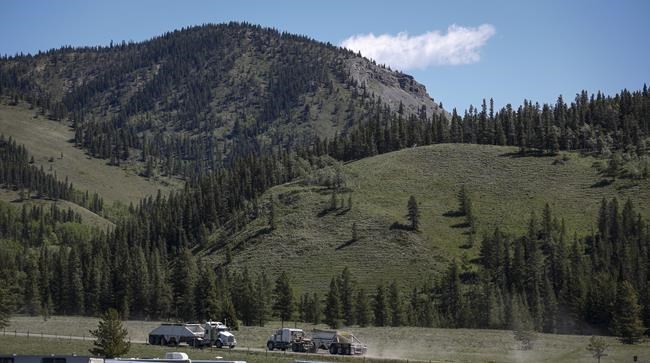GLASGOW, United Kingdom — Canada has joined the United States, United Kingdom and 21 other countries in a historic deal to stop new direct public finance for coal, oil, and gas development by the end of 2022.
The deal, signed at the COP26 climate meeting in Glasgow, Scotland, also promises more emphasis on financing renewable energy.
"Canada can lead in the low-carbon world if we keep putting our investments, innovations, and brain power behind ambitious climate action," said a release from Environment Minister Steven Guilbeault.
"That means quickly winding down new public international investments in unabated fossil fuels and powering up the shift to clean sources of energy."
The government said it has yet to define the scope of the new policy. The deal allows for continued finance of fossil fuels in limited circumstances that are consistent with international climate goals.
An environmental group that tracks public finance for fossil fuels said the deal could shift up to $22 billion from governments around the world into clean energy.
A recent report from Oil Change International, which tracks loans, loan guarantees, grants, share purchases, and insurance coverage provided to fossil-fuel producers by public agencies, said a total of $78 billion in such support was provided in 2018.
That report also found Canada to be the largest supporter of fossil fuels in the G20, making available almost $14 billion a year — almost all of that through Export Development Canada, a Crown agency that assists Canadian businesses in selling their products abroad and also helps oil and gas companies with domestic development.
Thursday's deal means Canada will probably lose that title, said Bronwen Tucker, a researcher who helped write the Oil Change report. The deal could affect anywhere between $2 billion and $9 billion from Export Development Canada, she said in a release.
"The federal government should also hear loud and clear that they must keep their election promises and extend this commitment to Export Development Canada’s closely related domestic finance [and] end other domestic fossil fuel subsidies."
The joint statement issued during the climate summit is the first international political commitment to address public finance for oil and gas.
The 24 signatories said they will encourage other governments as well as their export credit agencies and public finance institutions to implement similar commitments.
This report by The Canadian Press was first published Nov. 4, 2021.
— By Bob Weber in Edmonton
The Canadian Press



